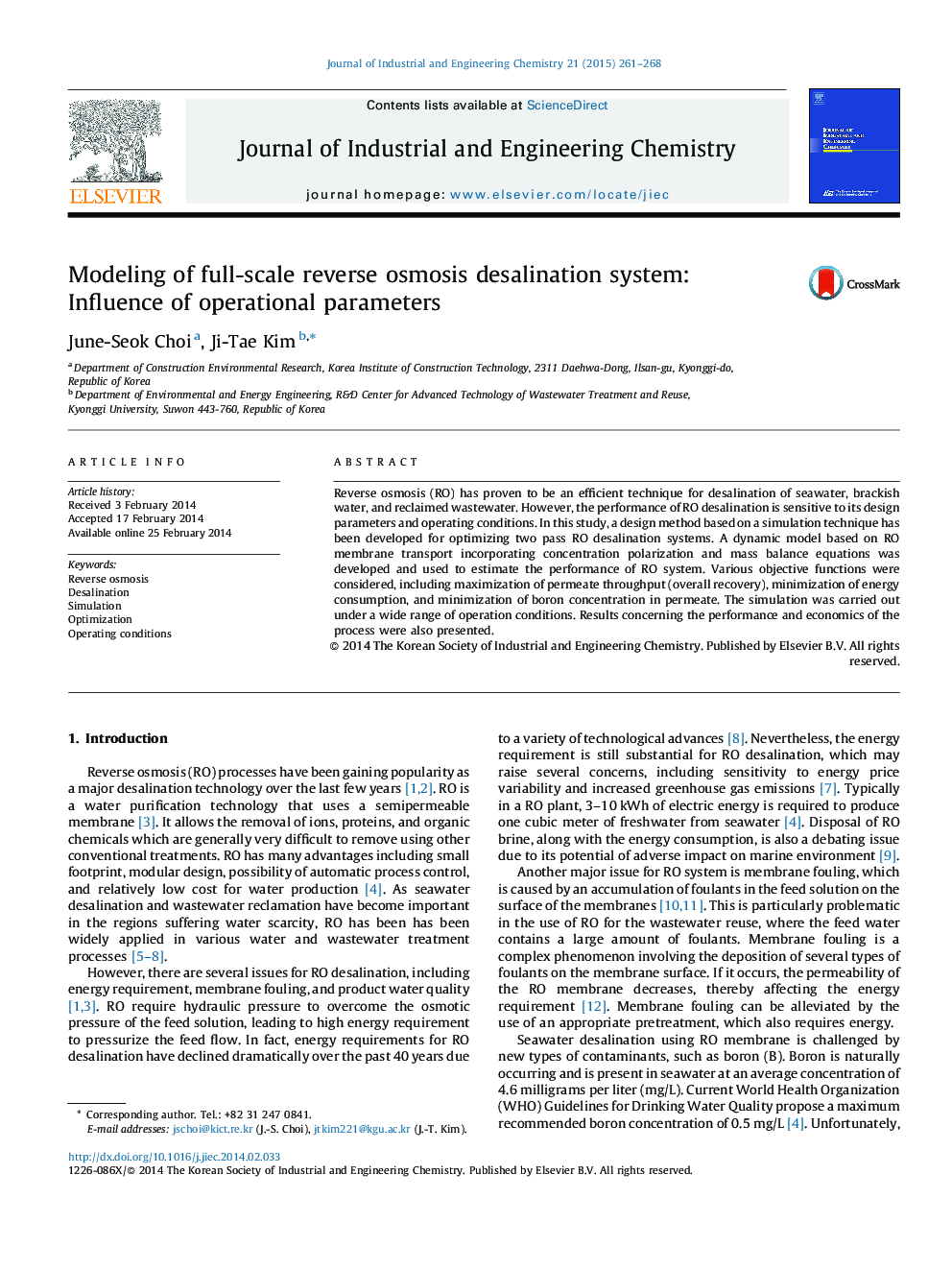| Article ID | Journal | Published Year | Pages | File Type |
|---|---|---|---|---|
| 226911 | Journal of Industrial and Engineering Chemistry | 2015 | 8 Pages |
Reverse osmosis (RO) has proven to be an efficient technique for desalination of seawater, brackish water, and reclaimed wastewater. However, the performance of RO desalination is sensitive to its design parameters and operating conditions. In this study, a design method based on a simulation technique has been developed for optimizing two pass RO desalination systems. A dynamic model based on RO membrane transport incorporating concentration polarization and mass balance equations was developed and used to estimate the performance of RO system. Various objective functions were considered, including maximization of permeate throughput (overall recovery), minimization of energy consumption, and minimization of boron concentration in permeate. The simulation was carried out under a wide range of operation conditions. Results concerning the performance and economics of the process were also presented.
